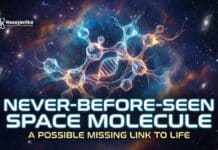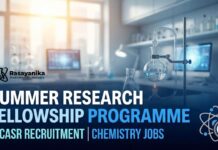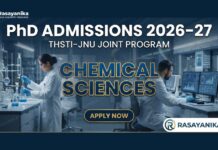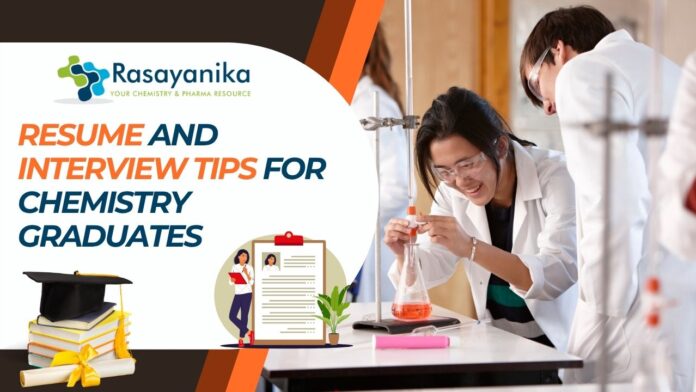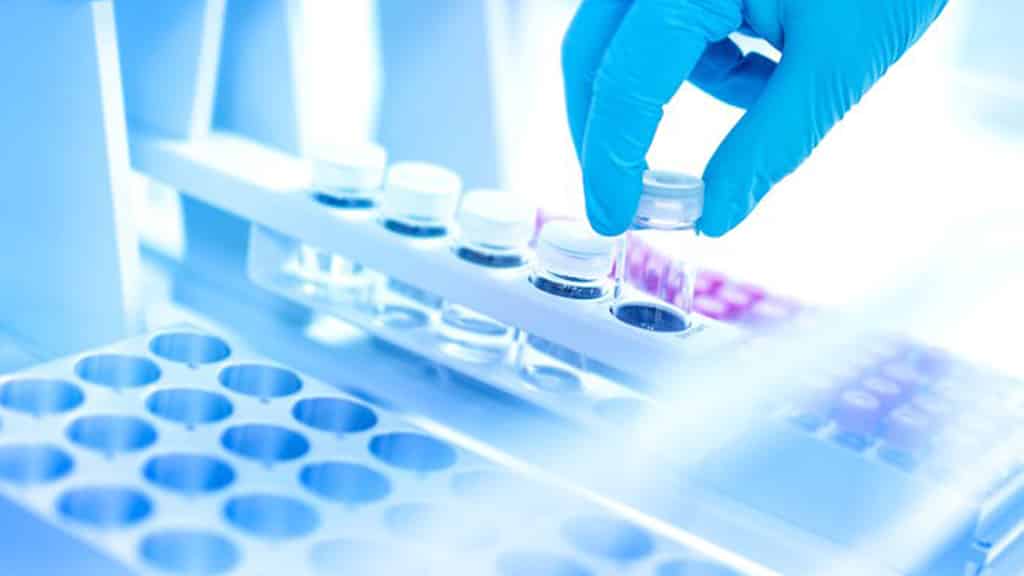Resume and Interview Tips for Chemistry Graduates
Kavya, a top-performing chemistry graduate, expected her degree to speak for itself when she stepped into the job market. However, after applying at multiple companies and receiving only one rejection email, reality hit her very hard; having a degree was not enough. While a degree in Chemistry opens doors to industries such as Pharmaceuticals, Environmental Science, quality control, and Education, transitioning from student life to a professional field takes more than academic knowledge. It requires an innovative and strategic approach, including crafting a compelling resume and thoroughly preparing for an interview.
So, how can you stand out in a competitive job market? Unlike Priya, many students faced the same issues while applying for the job. Let’s learn in-depth tips on how to create an effective resume as well as how to make a good impression during interviews.
Resume and Interview Tips For Chemistry Graduates
Your resume is your first chance to showcase your skills, experience, and passion for chemistry. It is more than a list; it highlights how you have applied your knowledge in real-time situations. A well-crafted resume sets you apart from other candidates and increases your chances of getting an interview .
1. Start with a Strong Objective or Summary:
Begin your resume with a short, impactful paragraph summarizing your goals and strengths. This is especially useful if you’re a fresher with limited experience.
- Mention your degree and specialization.
- Highlight one or two key skills or experiences and explain your career objectives in one or two sentences.Example:
“B.Sc. Chemistry graduate with strong analytical and problem-solving skills. Experienced in conducting laboratory experiments and using modern chemical instruments. Seeking an entry-level role in pharmaceutical quality assurance to contribute to safe product development.”
2. Highlight Education Clearly:
As a recent graduate, your knowledge is your biggest strength. Present it clearly, as well as include the following points
- Degree name and honors, if any
- Institution name, year of completion, and location.
- Add relevant coursework that aligns with the job you are applying for
Example:
Bachelor of Science in Chemistry (First Class Honors)
XYZ University, California — Graduated May 2025
Relevant Courses: Analytical Chemistry, Organic Chemistry, Biochemistry, Instrumental Analysis
If you completed a postgraduate program, include it above your undergraduate details.
3. Showcase Laboratory and Technical Skills
Chemistry jobs rely heavily on hands-on lab skills and familiarity with technical equipment. Make a separate section to showcase your expertise.
Include:
- Mention laboratory techniques such as titration, distillation, chromatography, etc., and specifically mention instruments you have used, such as HPLC, FTIR, and UV-Vis Spectrophotometer.
- Highlight software tools that you have used, such as ChemDraw, Excel, Origin, and LIMS.
Example:
Technical Skills:
- Laboratory Techniques: Titration, Recrystallization, Distillation
- Instruments: UV-Vis Spectroscopy, FTIR, HPLC
- Software: ChemDraw, Microsoft Excel, GraphPad Prism
4. Add Research, Internships, or Academic Projects
Even if you don’t have job experience, academic research, internships, or final-year projects, show your ability to work independently and solve scientific problems.
Include:
- Project title
- Objective of the research
- Tools or methods used
- Results or what you learned
Example:
Undergraduate Research Project
“Synthesis and Characterization of Paracetamol”
- Synthesized acetaminophen using an acylation reaction
- Purified the product through recrystallization
- Analyzed purity using IR spectroscopy and melting point analysis
- Learned to interpret IR spectra and perform yield calculations
5. Include Work Experience and Soft Skills
Any kind of work experience can be valuable, even if it’s outside your field. It shows responsibility, teamwork, and time management.
If you had internships or part-time jobs, mention your role and key responsibilities. Also, highlight soft skills such as:
- Communication
- Teamwork
- Problem-solving
- Time management
- Attention to detail
Example:
Intern, ABC Pharmaceuticals
June – August 2024
- Assisted with sample preparation as well as chemical testing
- Maintained laboratory record books and followed standard safety protocols.
- Effectively collaborated with the quality control team.
6. Keep It One Page (For Fresh Graduates)
The ideal resume format for freshers is one page. While making a resume, focus on clarity and relevance. Use bullet points and bold headers, and avoid large chunks of text. Make it easy to read at a glance.
Avoid adding unnecessary details like high school education or long lists of hobbies unrelated to the job.
Interview Tips for Chemistry Graduates
Once your resume lands you an interview, the next step is to impress during the conversation. This is your chance to showcase your communication skills, problem-solving ability, and passion. Proper preparation—researching the company, anticipating questions, and practicing clear answers—will help you present yourself confidently as the ideal candidate. Here’s how to prepare and perform at your best.
1. Know the Company and Role
Before the interview, research the company’s mission, products, research focus, and recent news.
- Visit the company’s website and LinkedIn page to learn about its clients, lab processes, or production lines.
- Study the job description thoroughly and prepare accordingly.
Why it matters: It helps you tailor your answers and shows the interviewer that you’re genuinely interested in the role.
Example:
“I’m impressed by your recent work on biodegradable polymers. I’m particularly interested in contributing to your R&D efforts on sustainable materials.”
2. Brush Up on Core Concepts
Interviewers often test your understanding of basic chemistry principles to ensure you’re ready for technical tasks.
Common topics include:
- pH and buffer preparation
- Molarity, normality, and concentration calculations
- Types of titration and indicators
- Instrumentation like UV-Vis, IR, and HPLC
- Organic reaction mechanisms
Practice explaining these concepts clearly and confidently.
3. Practice Behavioral Questions
Behavioral questions help assess your interpersonal and problem-solving skills.
Use the STAR Method (Situation, Task, Action, Result) to answer:
- Tell me about a time you handled a lab error
- Describe the project you have worked on
- What did you do when a team member didn’t contribute?
Example Answer:
“During our MSc final-year projects, I have encountered a fault reading in the HPLC output. I rechecked the sample preparation and identified a dilution error. After correcting it, I obtained consistent results. It taught me the importance of double-checking steps and documenting procedures.”
4. Ask Smart Questions
You are usually invited to ask questions at the end of the interview. This is your golden chance to show curiosity and interest in the position and the company.
Examples of thoughtful questions:
- What types of analytical techniques will I use in this role?
- What does success look like for a new hire in this position?
- Is there any training provided for new lab instruments?
Avoid asking about salary or vacation in the first round unless the employer brings it up.
5. Dress Professionally and Be Punctual
Even if you are applying for a Laboratory-based role, looking neat and professional is important. Dress in clean formal attire. Arrive at least 10-15 minutes early to the interview location or log in early if it is virtual, this will showcase your punctuality. Have one copy of your resume, a pen, and a notepad. These small details create a positive impression.
6. Show Enthusiasm and Willingness to Learn
Not every graduate knows everything. What matters is your attitude towards learning and growing.
Show your enthusiasm for the role and the company. If asked about skills you don’t have, respond positively:
Example:
“During my graduation, I did not have the chance to learn GC-MS, but I’m eager to learn new techniques. I have worked extensively with HPLC and i believe the concepts are transferable.”
This attitude can often outweigh technical gaps.
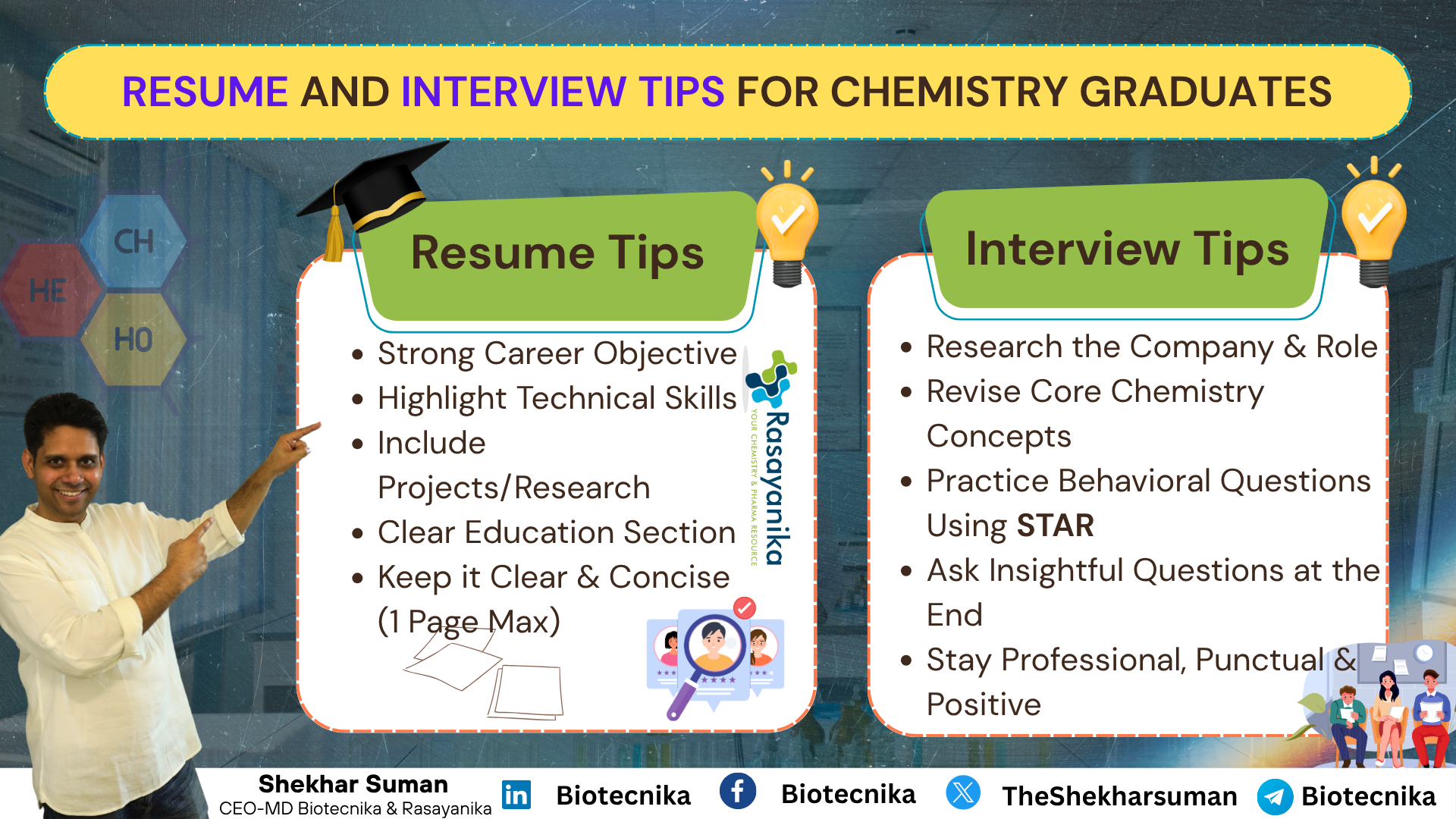
Common Interview Mistakes to Avoid
Avoid these pitfalls to stay ahead of the competition:
- Being Vague or Overconfident: Instead of giving broad or boastful answers, provide clear, honest responses supported by specific examples from your experience. For example, describe a project where you solved a problem or met a tight deadline.
- Not Knowing Your Resume: Be fully prepared to discuss every detail on your resume. Interviewers may ask about techniques you’ve listed or projects you’ve worked on, so understand and explain them confidently.
- Badmouthing Others: No matter your past experiences, always remain professional. Speaking negatively about former supervisors, colleagues, or internships reflects poorly on you and can cost you the job.
- Overusing Technical Jargon: While your chemistry knowledge is important, avoid overwhelming interviewers with complex terms, especially if they aren’t specialists. Use simple, clear language to explain your skills and experiences.
- Failing to Prepare: Preparation is key. Research the company and the role thoroughly, practice answering common interview questions, and prepare accordingly. This will showcase your genuine interest and help you stand out.
A degree in chemistry is a strong foundation, but securing a job requires more than academic knowledge. A clear concept, a focused resume, and a confident interview performance are key to getting hired for your dream job.
Take your time to present your strengths honestly, focus on your communication skills, and show a willingness to learn. With the right preparation, you will land a successful job in Chemistry.
Resume and Interview Tips For Chemistry Graduates




